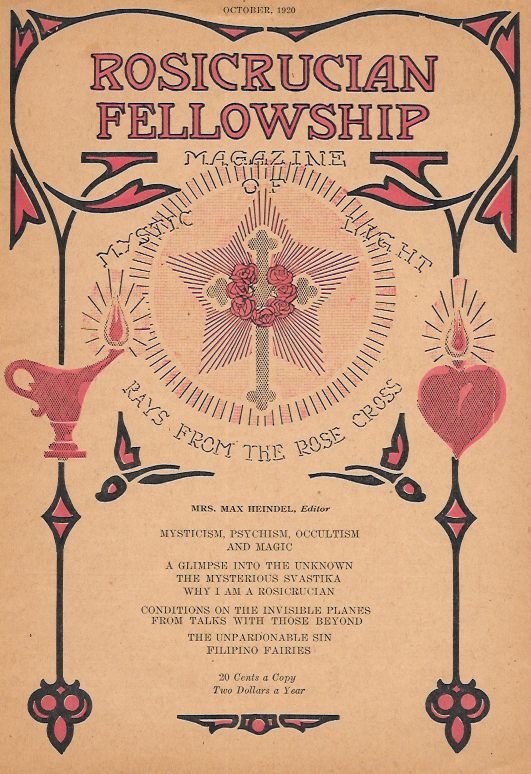

The twelve Commandments are a code of life; they are rules on the Path of Initiation that are capable of interpretation in seven different ways. The first interpretation, the literal sense, is the one best suited to the people to whom it was given. It corresponds exactly to the point which they had reached in evolution. Every higher interpretation belongs to a higher turn in evolution's spiral. Therefore a second interpretation in the light of Christ Jesus' Teachings illumines the ten Commandments of the Old Testament with the new light of two new Commandments, the Commandments of love.
The first interpretation serves to raise the consciousness of a people not yet awake spiritually. The second, or Christ, interpretation raises these same masses of people to the point of responsibility as individuals. The third interpretation takes the same people in mind and heart to the mountain, where we will find ourselves not self-important individuals, but a tiny integral part of the sublime majesty of the terrestrial and celestial macrocosm. Our hearts, in this deeply experienced knowledge, are full to overflowing with love of and gratitude to God Who has given us such abundance. We then aspire to assume some of our cosmic responsibility.
The fourth interpretation of the Commandments can be sensed only, not interpreted in words. The three highest of the seven interpretations are said to be understood only by the highest Adept. Christ Jesus, so immeasurably high in attainment, said He did not come to annul but to fulfill the law. We, however, cannot yet hope fully to fulfill that law. The first three of the seven interpretations are the only ones we can in measure understand or sense.
The twelve Commandments may be correlated to the twelve zodiacal signs. They also relate to the virtues belonging to the twelve precious stones that the priests of the Judean tabernacle wore on their breast plates. These stones, in rows of three, were: sardias, topaz, carbuncle; emerald, sapphire, diamond; jacinth, agate, amethyst; beryl, onyx, and jasper. Esoterically interpreted, the stones represent these virtues: illumination, love, wisdom; truth, justice, peace; equipoise, humility, faith; strength, joy, and victory. These virtues can also be considered keywords of the zodiacal signs.
The first Commandment is: Thou shalt have no other gods before me. When this Commandment was given us, when we were yet Israelites in the wilderness, Jehovah, or God, veiled Himself in an earthly cloud by day and a column of fire by night. This was the God before Whom we were to have no other. The human heart that was then kindled to obedience was "he who followeth me shall not walk in darkness."
In the night of our consciousness, God illumined our way. The first Commandment signifies illumination. Because it is cradled in Aries, it represents the awakening of the life of the soul as the Earth is awakened at the time of Aries in early spring. God with His intrinsic Light called us forth into the Light. God is synonymous with Light, and also symbolizes the head as indicated by Aries. God is the fountain-head of all that is created. The head potentially contains all. The head, illuminated, is the creator of all. The first commandment is the head and creator of all the rest. In the head is also the place where the God in man is generated and where piety has its seat.
Without God, no creation is possible. Without illuminating light, darkness remains darkness. Without the head, the body can never be. Without illumination in the head, the body remains dark. Mars, the ruler of Aries, descends from his high place with God to light little irritating fires in the sleeping darkness of the body. Whether or not the fires light up harmoniously depends on whether or not the darkness comprehends. Like the fire under a chair from which we do not wish to stir, Mars, or Lucifer the lightbearer, with his torch lighting gently or burning violently, incites to action. He is the hammer of the Godhead. He is the symbol of power offensive to inertia and lethargy.
In illumination of the first Commandment, the long labor of life starts. We are awakened, prodded to our own potencies which are summarized in sonship. Were we to rewrite this Commandment positively instead of negatively as it now is, it would read: Thou shalt be loyal to the one true God. Loyalty, therefore, is the task given us in this Commandment.
In the New Age, so close at hand, when the inner surging of life shall be more one-pointed toward God, man shall begin to wear a new expression Ä- the expression of true sonship. Could we really follow this wonderful first Commandment of bright illumination, we could dispense with the others, for it gives us full sonship.
Let us illustrate with a story: A father had two sons. One wished to earn his father's love and favor by working for him, meticulously doing his bidding. But the other son could not bear to be separated from his father, and said: "Father, away from you my heart aches. By my hand I cannot earn your love. Give my brother all your riches, but let me stay near you." The father answered: "My son, your love for me has uncovered my love. My bidding, my commandments are but testings. He who abides by my commandments does so because of self-love and reward, not because of love for me. But you have raised yourself above my commandments. You have found your way back to your father. Your brother shall inherit the Earth, but you shall inherit sonship."
This is the fulfillment of the first Commandment, and all Commandments.
— Rays from the Rose Cross Magazine, May, 1976, page 263